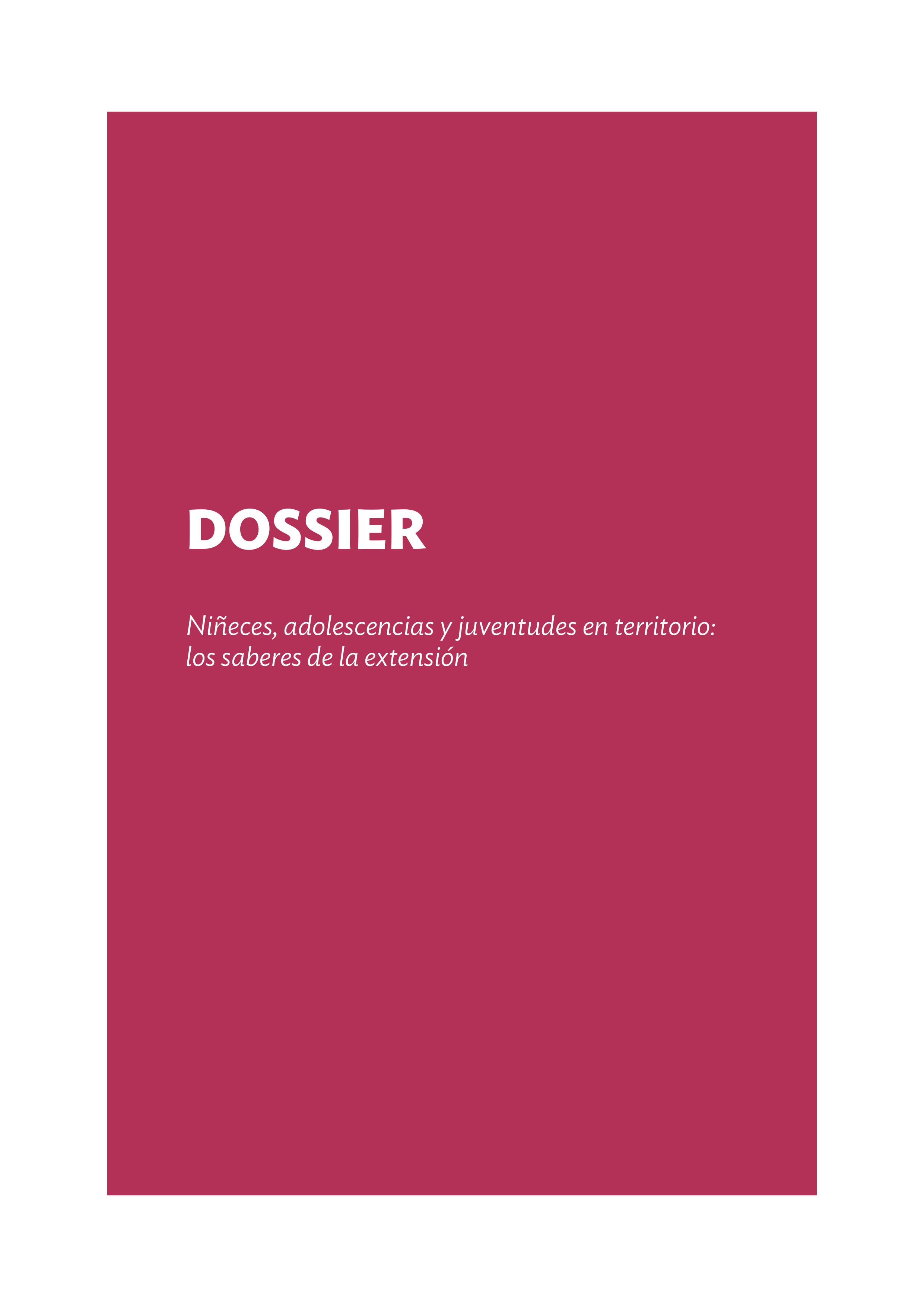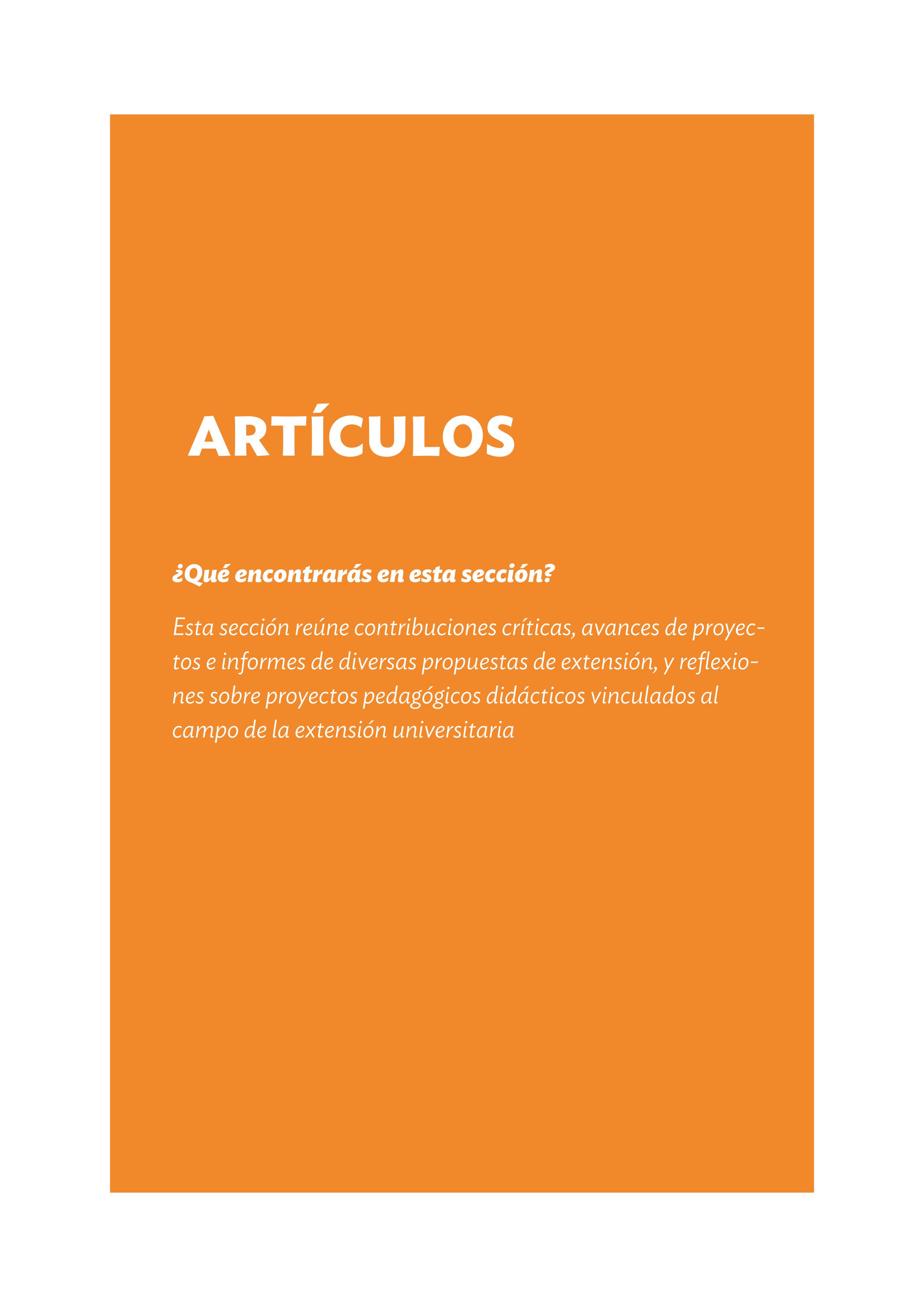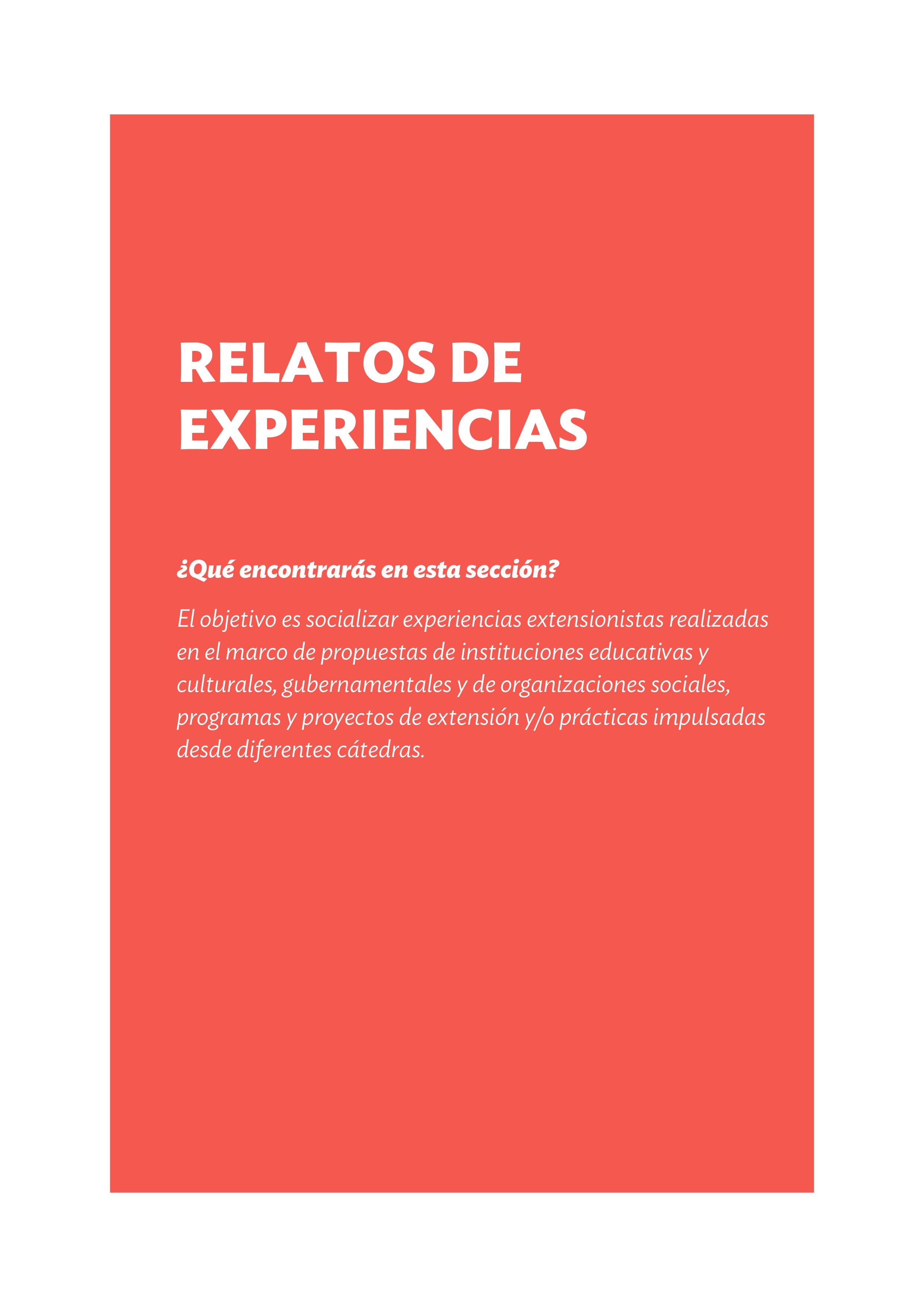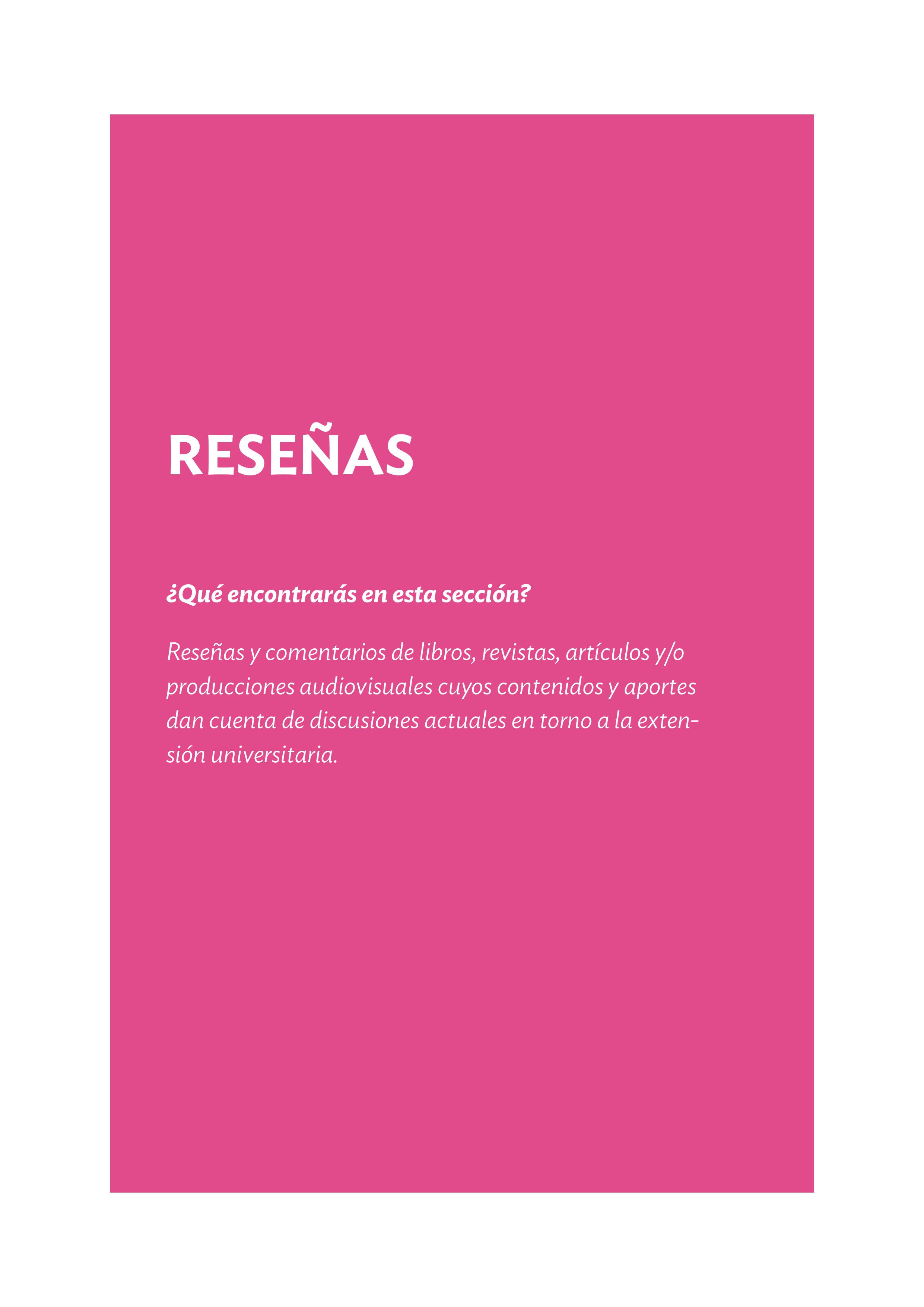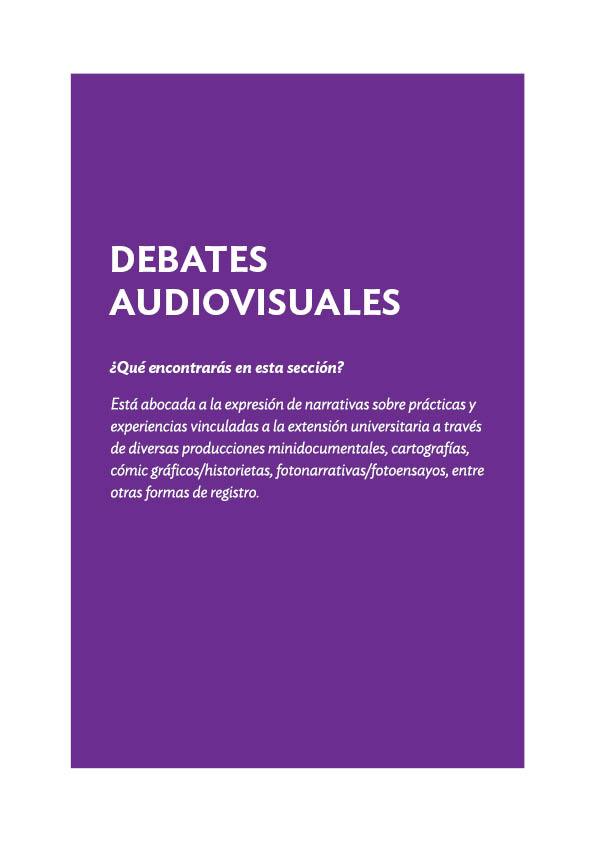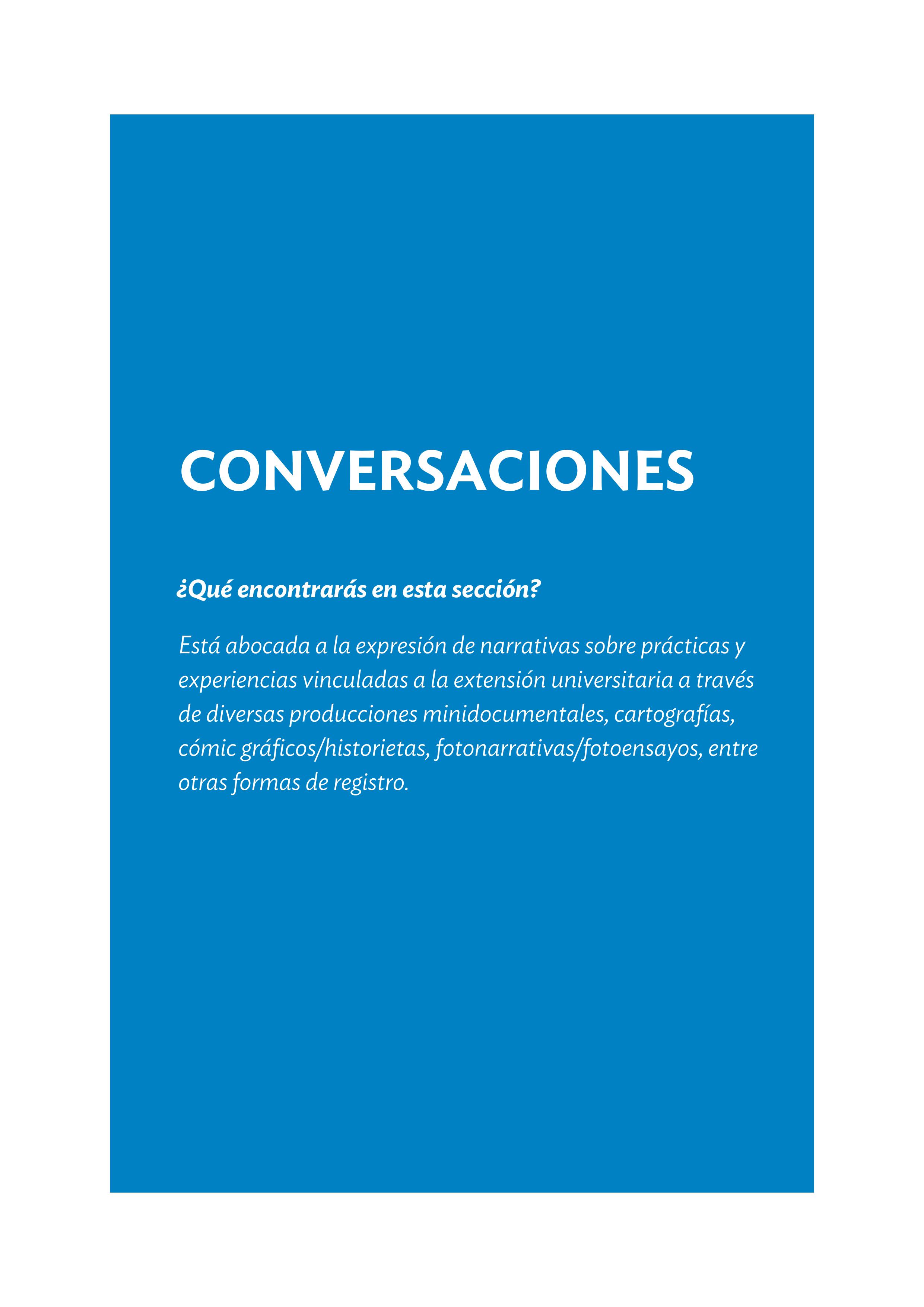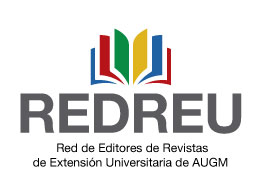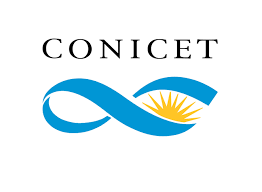Vol. 9 No. 13 (2022): Childhood, adolescence and youth in the territory: the knowledge of extension
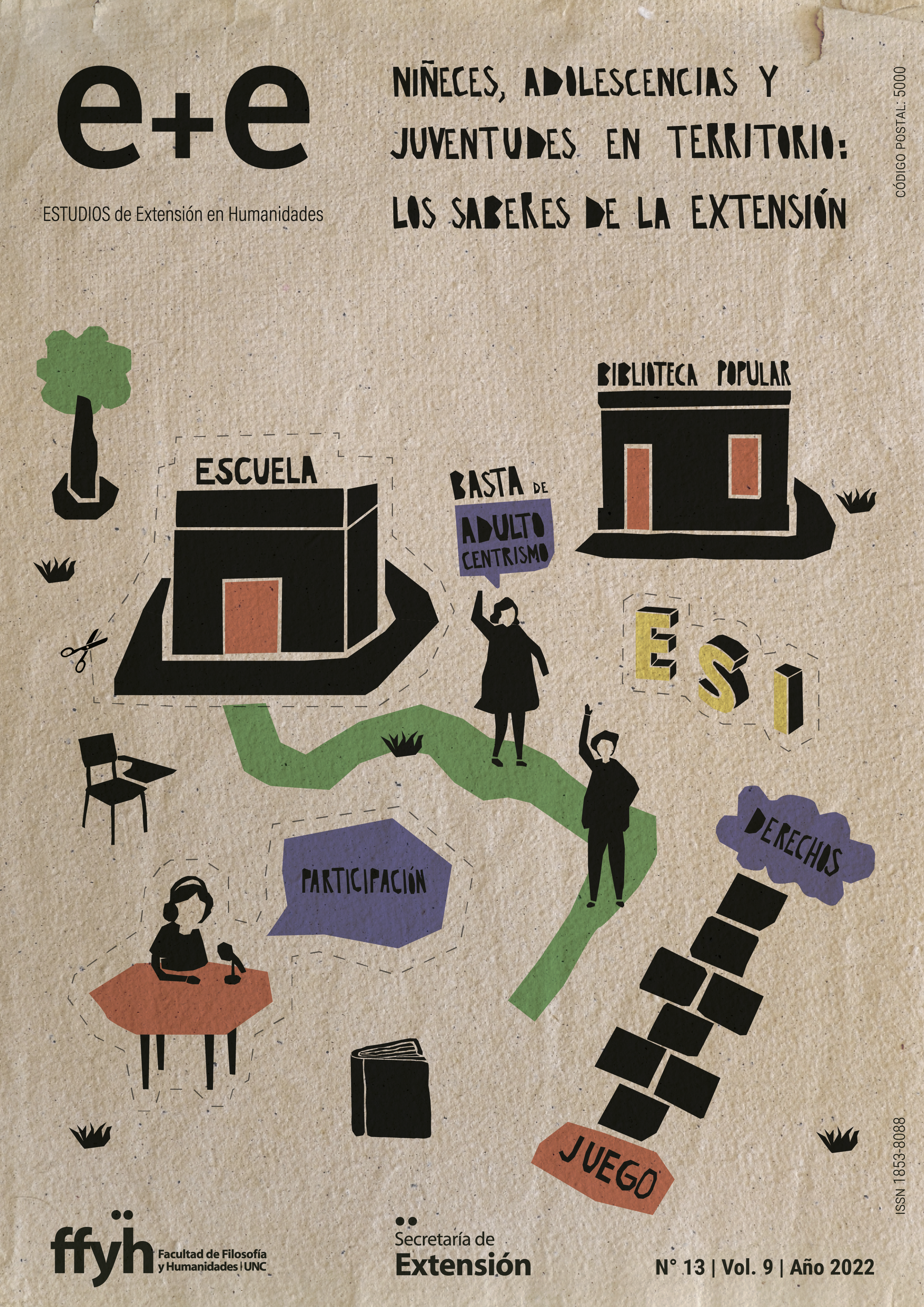
In the field of childhood, adolescence and youth, there are socio-historical disputes between paradigms, practices, policies and rights.
paradigms, practices, policies and rights, where the view of children as minors and objects of protection
appears in conflict with the conception as subjects of rights. These disputes are rooted in adultcentrism, a system of domination that places adulthood as the finished expression of what is human, and is imbricated in the plots of patriarchy and coloniality to produce complex subalternities. The minorization of childhood has gone hand in hand with the subordination of women, and with the imposition of a model of universal childhood, modern and functional to the capitalist system, have generated in our territories unfathomable forms of dispossession. For this reason, working with children, adolescents and young people requires strategies that break down these power relations, restore rights and generate parities. To recognize and make room for their possibilities of creating and transforming, for the powerful ways in which they face difficulties, the beauty with which they draw new horizons and co-protagonize daily life.
The progress in legislation in our country, since the ratification of the International Convention on the Rights of the Child (1994), Law 26061 on the comprehensive protection of the rights of children and adolescents (2005), the Comprehensive Sex Education Law (2006), Law 26206 on National Education (2006), the amendments to the Civil Code (2015), among others, have meant a valuable process in the production of a new plot in intergenerational relations. But these normative changes have not always materialized in practices or public policies capable of impacting the lives of children and young people and their communities, as they have been and continue to be accompanied by a growing and deep inequality and poverty. This scenario invites us to reflect critically on the expansion of rights and their debts in the current situation.
The university, through extension, has generated different links with infancy, childhood, adolescence and youth,
from giving them the place of passive receivers of knowledge, as beings to be completed and modeled in the image and likeness of adults; or as future pieces of the productive apparatus; to the construction of participatory and protagonist experiences, where their voices are the engine of other possible presents. In recent decades, higher education institutions have been, in many cases, relevant actors in the construction of new institutions from a rights-based approach, and in some other cases, those who open doors to narratives of the common good and good living.
The purpose of this dossier is to bring together contributions that account for the diversity of registers, reflections and
experiences, developed in the territories, in dialogues of knowledge with children, adolescents and young people. Practices housed in institutions, schools, organizations and social movements, health centers, neighborhood, cultural and community centers, radios, clubs, trade unions, popular libraries, religious entities, etc. This implies questioning ourselves about other ways of being adults in daily life and in the exercise of our professions, even those that barely glimpse their co-responsibility in the guarantee of rights. We also invite us to ask ourselves about the public and collective place assumed by children, adolescents and young people, the encounter with peers and between generations. Finally, we are interested in the impact of the COVID 19 pandemic on the lives of children, adolescents and young people, especially those who live in poverty, or who, because of their gender, culture, belonging to indigenous peoples, territory or health, suffer from other inequalities.
We hope that this issue of the journal E+E: Estudios de extensión en humanidades can map this variety of experiences, sometimes invisible and minoritized, as well as the subjects it embraces. A map that recognizes in the extension work, the capacities to accompany children, adolescents and youth in the creation of new and more dignified ways of being in this world, of making worlds.
